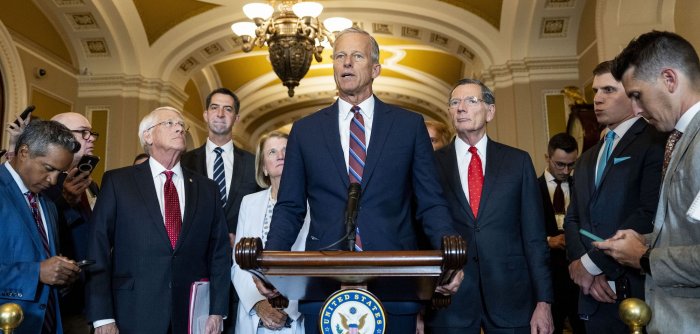Republican Senators Propose Major Labor Law Overhaul Amid Calls for Modernization

By Theodore Bunker | Monday, 10 November 2025 10:54 AM EST
A group of Republican senators introduced legislation Monday aimed at overhauling national labor laws to align with contemporary economic realities. The proposed bills seek to modernize outdated statutes by addressing current work practices rather than those from nearly a century ago, according to the lawmakers who spearheaded the effort.
Sen. Bill Cassidy, R-La., chair of the Senate Health, Education, Labor and Pensions (HELP) Committee, led the initiative with support from Sens. Jim Banks, R-Ind., Tommy Tuberville, R-Ala., and Tim Scott, R-S.C. Cassidy stated the reforms aim to balance worker rights, union interests, and business needs.
“We have two goals here,” Cassidy said. “How do you improve the voice of the worker, the choice of the worker, and the rights of the worker to achieve the second goal: labor and business working together to create certainty and increase prosperity.”
The first bill, the RESULTS Act, would revise union election rules by mandating secret ballots and a two-thirds quorum for vote validation, while extending the timeframe for workers to decide on union representation from one month to 90 days. Another measure, the Fairness in Filing Act, would require workers filing unfair labor practice charges to submit evidence like text messages or emails to curb frivolous claims and expedite processing at the National Labor Relations Board.
A third bill, the Union Members’ Right to Know Act, would compel unions to provide clearer disclosures about members’ rights, particularly regarding political spending and dues, and allow workers to opt out of political contributions. Additional provisions would protect workers’ personal data and prohibit illegal immigrants from being hired or unionized under federal law.
Cassidy emphasized the reforms are designed to modernize, not weaken, unions and build on prior efforts to expand protections for independent and gig-economy workers. He noted the U.S. labor law framework has remained largely unchanged despite significant shifts in employment practices.
The bills were introduced in the Senate on Monday and will be referred to the HELP Committee for further review. If passed, they could represent the most substantial revision of authority under the National Labor Relations Act and other major labor statutes in decades.




